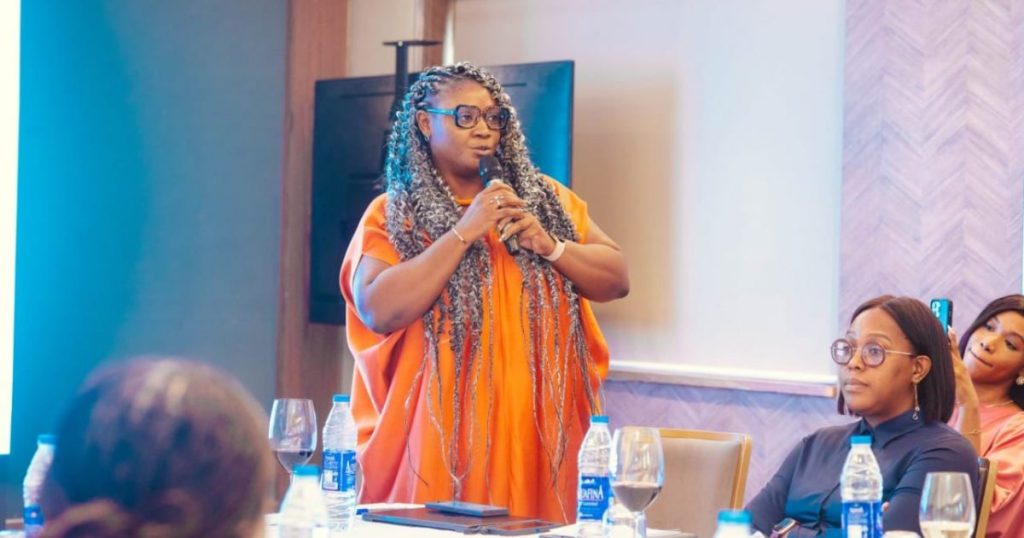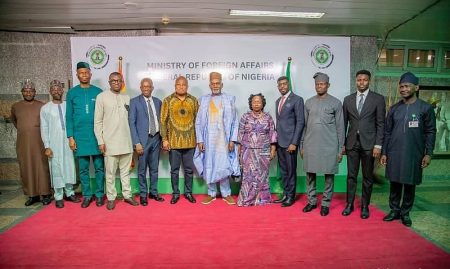The African Women on Board (AWB) has sounded a clarion call for gender equity in Nigeria’s health sector leadership. A new report, “A Balanced Prescription: Leadership & Innovation in Nigeria’s Health Sector,” highlights the stark underrepresentation of women in leadership positions despite their crucial role in healthcare delivery. The report, previewed at a roundtable discussion in Lagos, underscores the urgent need for systemic reforms to dismantle entrenched structural barriers that hinder women’s advancement. The AWB argues that empowering women in leadership isn’t merely a matter of fairness; it’s a strategic imperative for strengthening the entire national health system. The report emphasizes the interconnectedness of gender equity and improved health outcomes, advocating for deliberate policies and institutional changes to create a level playing field for women in the sector. This call to action aims to transform the health sector into a more inclusive and effective system that leverages the talents and expertise of all its contributors.
The report’s findings reveal a deep-seated disparity between women’s contributions to healthcare and their representation in leadership roles. While women form the backbone of healthcare services in Nigeria, their voices are often marginalized in decision-making processes. This imbalance not only limits individual opportunities for women but also deprives the health sector of valuable perspectives and leadership potential. By advocating for greater female representation, the AWB seeks to create a more balanced and effective healthcare system capable of addressing the diverse health needs of the Nigerian population. This push for inclusivity recognizes that a diverse leadership brings a wider range of experiences and insights, leading to more innovative and responsive solutions.
The roundtable discussion, attended by key stakeholders including healthcare professionals, policymakers, and industry leaders, provided a platform for深入探讨 the report’s findings and their implications. Dr Nkiru Balonwu, Founder of AWB and Africa Soft Power, emphasized the importance of providing platforms for African women leaders to showcase their ideas and approaches. Dr. Balonwu noted that addressing the gender gap in leadership is crucial for tackling the challenges and maximizing the opportunities facing the public and private health sectors. The discussion underscored the belief that inclusive leadership is not just about equity; it’s about optimizing the potential of the entire workforce to build a more robust and equitable economic future.
A critical aspect of the discussion revolved around the transformative role of innovation, particularly artificial intelligence (AI), in shaping the future of healthcare. However, experts cautioned against the potential for AI to perpetuate existing inequalities if not developed and implemented responsibly. Audrey Odogu, Senior Manager at eHealth Africa, highlighted the critical importance of gender-inclusive data in informing AI development. She stressed that without comprehensive and representative data, AI systems risk exacerbating existing biases, potentially leading to skewed outcomes and further marginalizing certain groups, particularly women. This emphasizes the urgent need for concerted efforts to ensure that the data used to train AI algorithms accurately reflects the diversity of healthcare experiences, particularly those of African women.
The roundtable participants also emphasized the importance of practical strategies for empowering women in the health sector. Dr. Olayemi Dawodu, Managing Director of Cerba Lancet Nigeria, advocated for a multi-pronged approach that includes mentorship programs, leadership training, and economic empowerment initiatives. These strategies aim to equip women with the skills and resources they need to overcome systemic barriers and ascend to leadership positions. Dr. Dawodu particularly stressed the importance of financial independence for women, highlighting its role in enabling women to escape challenging circumstances such as violence or economic exploitation. This emphasizes the interconnectedness of various forms of empowerment and their collective impact on women’s ability to achieve leadership roles.
The discussion also touched upon the powerful influence of media representation in shaping perceptions of women’s leadership. Mary Edoro, Chief of Staff and Head of Strategy at BellaNaija, emphasized the need to move beyond simply “empowering” women, a term often implying permission rather than genuine authority. She called for a shift in focus towards placing women in positions of actual power, particularly in decision-making roles and elected office. This reflects a growing recognition that true empowerment comes not from rhetoric but from concrete access to positions of influence. The upcoming Remarkable Women’s Leadership Conference, to be held during the Africa Soft Power Summit in Nairobi, will serve as a platform to officially launch the full report and continue the conversation on advancing gender equity in leadership across various sectors. The conference is expected to galvanize further action and drive the implementation of strategies for creating a more inclusive and representative leadership landscape.














